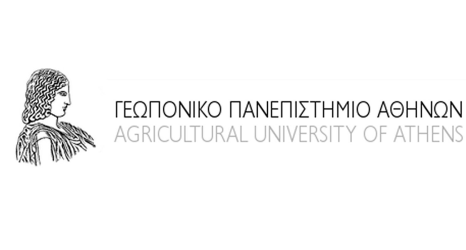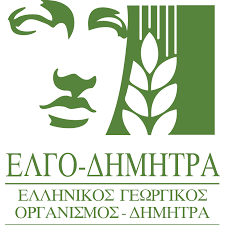Partners

Agricultural University of Athens (AUA) is the 3rd oldest University in Greece. Since 1920, contributes consistently and continuously to Greek and European primary sector development, by conducting basic and applied research in agricultural related sciences. AUA conducts 1/3 of the agricultural research in Greece and counts 178 academic staff, 300 supportive staff, 5,000 students, 450 MSc students and 250 PhD students. It’s research funding schemes come from the private sector as well EU and Greek research projects. AUA contributions address a wide range of issues related to food safety and environmental protection significantly affecting the daily lives of Greek and Europeans citizens: food quality and safety, water resource conservation, organic farming, alternative energy sources, biotechnological applications in agriculture, information and communications technology.
The main objective of ELGO-DEMITRA is the development and support of actions aimed at the modernization and development of the country’s agricultural sector, the improvement of production processes, the enhancement of competitiveness, the certification of quality agricultural products and food, the establishment and certification of good agricultural practices and controls in the production and distribution chain of milk and meat in the country. The individual sectors in which ELGO DIMITRA is active are:
promoting innovation, conducting research, dissemination of knowledge, technology and advisory services in all sectors of the agri-food chain,
the provision of agricultural vocational education and training,
protection of origin and identity, checks on the legal use of terms, symbols and indications on agricultural products and foodstuffs in order to ensure their quality,
the application of good agricultural practices, and
the thorough control of the origin, production, quality and distribution circuit for milk and meat in the country.


The Laboratory of Genetics at the Agricultural University of Athens, which has been active for more than half a century, encompasses all aspects of modern genetics, bioinformatics, structural and systems biology approaches. The aim is to combine multi-dimensional genomic information, to investigate complex molecular systems, heredity, population genetics and even complex diseases. In fact, the Genetics Laboratory coalesces various fields of state-of-the-art research in genetics into a multidiscipline approach adjusted to meet the needs of the post-Genomic era. Of particular interest is the development of statistical and computational methodologies to analyze high-throughput microarray and sequencing gene expression experiments, genetic mapping and integrate gene expression profiles, agricultural, animal and human genetics, animal biotechnology, molecular markers and complex phenotypic traits. Special emphasis is given on the development of tools to study of protein fold and structure. The focus of the lab is also on computational statistics, stochastic search algorithms, partition modelling, Bayesian analysis of change-point models, as well as to integrate, store, organize, visualize and enhance the understanding of complex genetic and structural datasets.